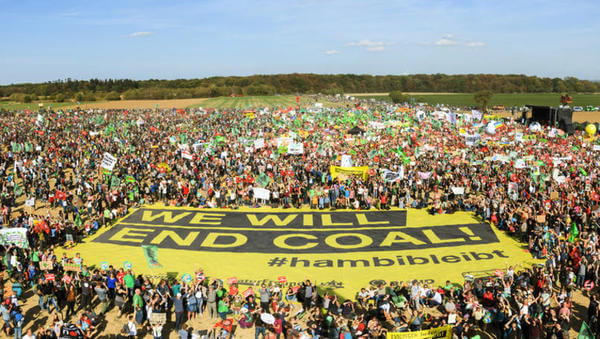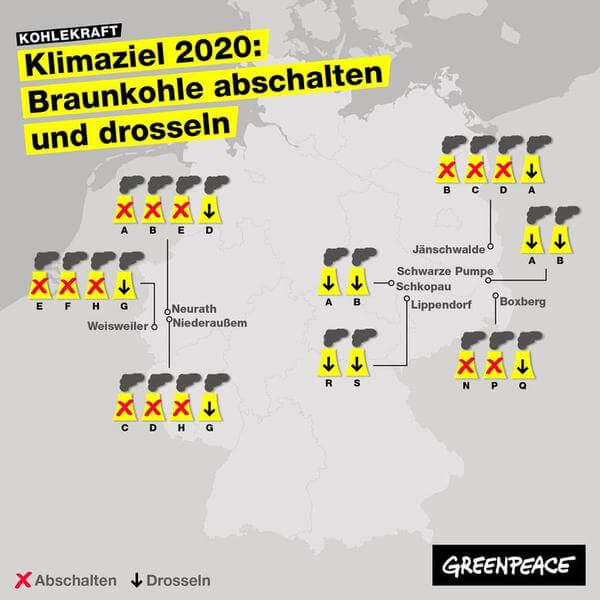News Release from windfair.net
Wind Industry Profile of
Germany Under Pressure: When Will the Coal Phase-Out Finally Start?
The fact that Germany is sloppily tackling climate protection is no longer a secret: in recent years, the former energy transition pioneer has had more and more problems fulfilling its obligations with regard to climate protection and energy transition. Emissions scandals, bans on diesel driving, delays in special tenders, failures to meet climate protection targets - the list is getting longer and longer.
Meanwhile, the specially appointed 'Coal Commission' is to determine when and how Germany will finally opt out of environmentally harmful coal-fired power generation. But while the Commission is still arguing about timetables and measures, new research reports are increasing the pressure on the federal government to finally take concrete action. Because time is pressing.
Coal Phase-Out by 2030
As a new report by the climate research institute Climate Analytics shows, it is imperative that Germany must phase out coal by 2030 if the country is to make its contribution to the Paris Climate Protection Agreement. The agreement stipulates that global warming must not rise to more than 1.5 degrees Celsius, otherwise apocalyptic scenarios such as drought, famine and flooding could threaten the world by the year 2100 at the latest.
"By rapidly phasing coal out of its electricity system by 2030, Germany could meet its 2020 emissions target, make massive health gains across the nation through reduced air pollution, and regain much needed momentum for a successful German ‘Energiewende’,” said Dr Carl-Friedrich Schleussner, Head of Science and Impacts at Climate Analytics, explaining the advantages of phasing out.
Germany as a Role Model
Germany also has an important role to play from a global perspective, because the country is the EU's largest emitter of greenhouse gases all the while the strong economy serves as a role model. Because if Germany can manage to phase out coal, then other countries can too.
"A structured coal phase-out plan for 2030, along with intermediate plant shut down by 2020 to meet long standing goals, would signal to the rest of the EU countries and the international community that Germany remains serious about fighting climate change and implementing the Paris Agreement – and would re-boot its reputation as a climate leader,” said Paola Yanguas Parra, study leader and Climate Policy Analyst at Climate Analytics. Germany has already demonstrated during the early days of the energy transition that even large economies are capable of producing enough green electricity without bottlenecks.

The German population wants the phase-out of coal quickly (Image: Bernd Arnold / Greenpeace)
It's Almost High Noon
Fatih Birol, head of the International Energy Agency (IEA), also recently said at a conference that it was almost high noon: "Sorry, I have very bad news. My numbers are giving me some despair." In view of the fact that in the first nine months of the year emissions are again heading for a record high, "chances of reaching such ambitious targets in my view, are becoming weaker and weaker every year, every month,” says Birol according to the news portal Climate Home News.
Two Exit Scenarios
The report proposes two concrete Paris Agreement-compatible schedules for phasing out coal-fired power stations in Germany. Under the ‘Regulator’s Perspective’, the most polluting plants would be closed down first. The ‘Owner’s Perspective’ would instead close down the least economic units first. Either way, the phase-out would have to start quickly: This means that 16 gigawatts of coal-fired power plant capacity would have to be shut down by 2020.
Less radical in comparison were the proposals of a further study recently prepared by the Fraunhofer Institute for Energy Economics and Energy System Technology (Fraunhofer IEE) on behalf of Greenpeace: According to the study, only 6.1 gigawatts would have to be switched off by 2020.

No more business as usual: Either the power plant units would have to be shut down (marked by a red cross) or at least throttled (marked by a black arrow) (Image: Greenpeace)
Nevertheless, action is needed - and fast. "Now it's time for Angela Merkel to say once again: Yes, we can do it," commented Anke Peters, Greenpeace energy expert, on the results. "Getting out of coal is a big and difficult task. But it can succeed. It's necessary - and it's an opportunity for Germany."
- Author:
- Katrin Radtke
- Email:
- press@windfair.net
- Keywords:
- Germany, coal, phase out, coal commission, energy transition, Climate Analytics, Greenpeace, study, report























